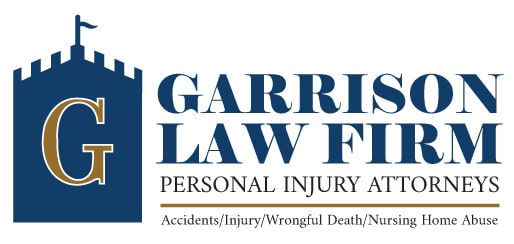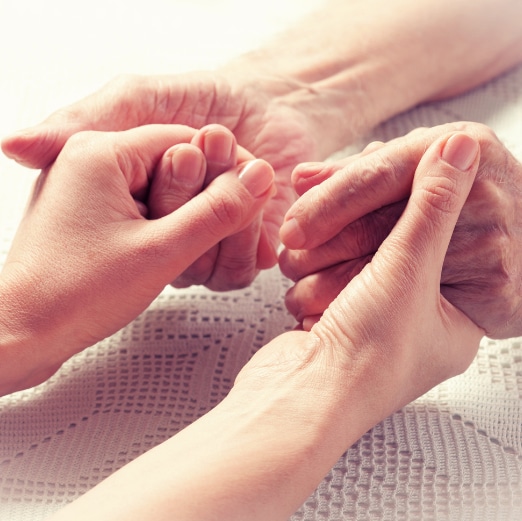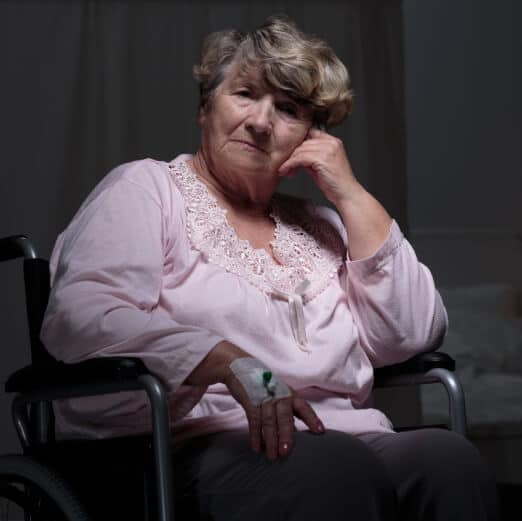Nursing Home Abuse
Protecting Your Loved Ones from Nursing Home Abuse
At Garrison Law Firm, we understand the immense love and care you have for your family members, especially as they age. If your loved one has experienced mistreatment or abuse in a nursing home, our dedicated team is here to help you seek justice. Contact us today for a free legal consultation to assess your situation and explore your options for recovery.
The Reality of Elder Abuse in Arizona
The elderly are particularly vulnerable to abuse, whether at home, under the care of others, or within nursing facilities. Sadly, many instances of neglect go unnoticed or unreported. If you suspect your loved one has suffered harm while in a nursing home, it’s crucial to act swiftly.
As individuals age, they may face challenges such as hearing and vision impairments, as well as memory loss. These conditions can make them targets for verbal and physical abuse, creating opportunities for exploitation. While some signs of mistreatment may resemble the natural decline associated with aging, every situation warrants thorough investigation.
Common Indicators of Nursing Home Abuse
If you’ve observed changes in your loved one’s behavior or personality, or if there is noticeable tension between them and their caregiver, it may indicate potential abuse or neglect. Nursing home abuse can manifest in various forms, including:

Signs of Physical Abuse
- Dislocations, sprains, or broken bones
- Bruises, scars, or welts on the body
- Refusal to take medications
- Restraint marks on wrists
- Caregiver reluctance to allow private time with your loved one

Signs of Emotional Abuse
- Fear, anxiety, or depression
- Social isolation and loneliness
- Reluctance to eat or engage in activities
- Declining physical health
- Caregiver’s yelling, belittling, or threatening behavior

Signs of Caregiver Neglect
- Leaving an elderly person unattended in public
- Unsafe living conditions (e.g., lack of heat, faulty wiring)
- Inappropriate attire for the weather
- Failure to provide hygiene (e.g., bathing)
- Presence of bedsores from lack of movement
- Significant weight loss or dehydration
- Insufficient or untrained staff
If you suspect abuse or neglect, we urge you to consult with our experienced nursing home lawyers.
Understanding the Rights of Nursing Home Residents
Every elderly resident in a nursing home has rights, including:
- Freedom from abuse and neglect
- The ability to manage personal finances
- Ownership of personal belongings
- The right to choose their physician
- Participation in medical decisions
- Freedom from unnecessary physical or chemical restraints
- Private visits and communications
- Access to legal counsel
- The ability to file grievances regarding rights violations
- The option to refuse work within the facility
Why Choose Garrison Law Firm?
Our mission is to protect the rights of nursing home abuse victims and their families. With over 30 years of experience, attorney Kevin Garrison is committed to securing justice for those harmed by neglect or abuse. Our knowledgeable team is ready to provide the compassionate legal support you deserve.
Arizona Elder Abuse Laws
Arizona’s Adult Protective Services Act (APSA) was enacted to combat elder abuse, criminalizing the mistreatment of incapacitated or vulnerable adults. The APSA provides a civil cause of action for victims, allowing them to seek compensation for neglect, abuse, or exploitation.
Incapacitated adults include those with mental or physical impairments that hinder their ability to make informed decisions. Arizona’s elder abuse laws define various forms of abuse, including emotional, physical, and serious physical injuries, as well as the concept of vulnerability.

Emotional Abuse
means a pattern of ridiculing or demeaning a vulnerable adult, making derogatory remarks to a vulnerable adult, verbally harassing a vulnerable adult or threatening to inflict physical or emotional harm on a vulnerable adult.

Physical injury
means the impairment of physical condition and includes any skin bruising, pressure sores, bleeding, failure to thrive, malnutrition, dehydration, burns, fracture of any bone, subdural hematoma, soft tissue swelling, injury to any internal organ or any physical condition that imperils health or welfare.

Serious physical injury
means physical injury that creates a reasonable risk of death or that causes serious or permanent disfigurement, serious impairment of health or loss or protracted impairment of the function of any bodily organ or limb.

Incapacity
means an impairment by reason of mental illness, mental deficiency, mental disorder, physical illness or disability, advanced age, chronic use of drugs, chronic intoxication or other cause to the extent that the person lacks sufficient understanding or capacity to make or communicate informed decisions concerning his/her person.

Vulnerable adult
means an individual who is over eighteen years of age or older who is unable to protect himself from abuse, neglect or exploitation by others because of a physical or mental impairment.
Types of Damages Available in Arizona Elder Abuse Cases
Under A.R.S. § 46-455, victims may be awarded damages for pain and suffering. The court can also impose punitive damages and costs associated with the case. Given the nature of elder abuse, pain and suffering are often the primary recoverable damages, as many victims may not have employment-related claims due to their circumstances.
Our team at Garrison Law Firm understands the complexities of elder abuse cases and is prepared to help you navigate the legal system to ensure your loved one’s rights are protected.
Contact Garrison Law Firm Today
If you suspect that you or a loved one has been a victim of nursing home abuse, don’t hesitate to reach out to us at (623) 915-1100 or fill out our online form to get legal advice. The father and son legal team at Garrison Law Firm is here to help.



